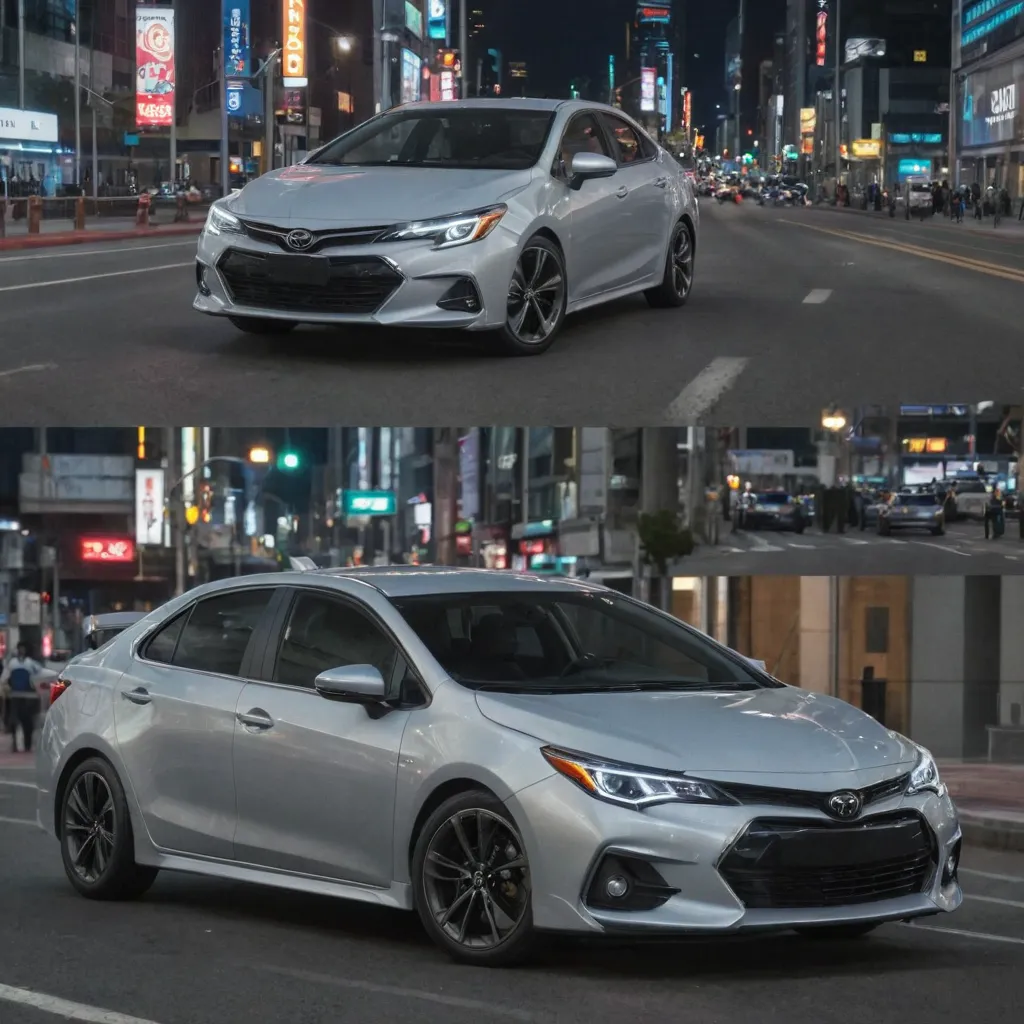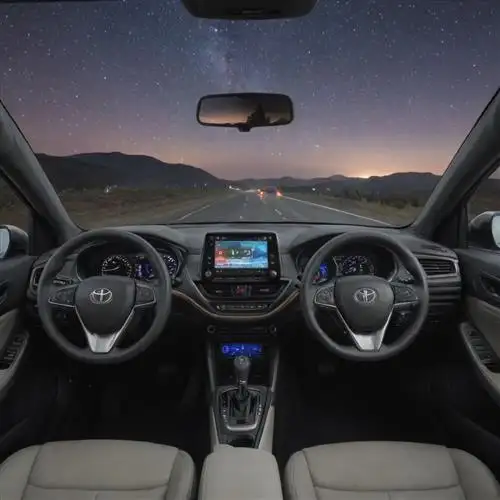
Fuel Efficiency Showdown
When it comes to fuel efficiency, the Toyota Corolla and Chevrolet Cruze are two of the most popular compact cars on the market. Both models offer impressive mileage, but their approaches to achieving optimal fuel economy differ. Understanding the nuances of their performance can help you make an informed decision when choosing between these two fuel-efficient vehicles.
The Toyota Corolla is renowned for its exceptional fuel economy. Powered by a 1.8-liter four-cylinder engine, the Corolla boasts an EPA-estimated 31 miles per gallon in the city and 38 miles per gallon on the highway. This efficiency is attributed to Toyota's advanced engine technology, including variable valve timing and direct fuel injection. The Corolla's lightweight design and aerodynamic body shape also contribute to its impressive fuel efficiency.
In contrast, the Chevrolet Cruze takes a different approach to fuel efficiency. Equipped with a turbocharged 1.4-liter four-cylinder engine, the Cruze achieves an EPA-estimated 28 miles per gallon in the city and 38 miles per gallon on the highway. While the Cruze's engine is smaller than the Corolla's, the turbocharger helps to boost power and improve overall efficiency. Additionally, the Cruze's lightweight construction and aerodynamic design play a role in its fuel-efficient performance.
When it comes to real-world driving, the Corolla's fuel efficiency often exceeds expectations. Many owners report achieving even higher mileage than the EPA estimates, particularly in city driving conditions. The Cruze's fuel efficiency, on the other hand, may be more variable, with some drivers reporting lower mileage than the official figures, especially when driving at higher speeds or in more demanding conditions.
It's worth noting that fuel efficiency can also be influenced by factors such as driving style, traffic conditions, and maintenance. Regular maintenance, including tire rotation, air filter replacement, and proper tire inflation, can help maximize the fuel efficiency of both the Corolla and the Cruze.
Cargo Capacity Clash
The Toyota Corolla and Chevrolet Cruze are two of the most popular compact cars on the market, each offering a unique set of features and capabilities. When it comes to cargo capacity, these two models present a clear contrast that can significantly impact a buyer's decision. Let's dive into the details and explore the "Cargo Capacity Clash" between the Corolla and Cruze.
One of the key differences between the Corolla and Cruze lies in their trunk space. The Corolla boasts a respectable 13.1 cubic feet of cargo volume, allowing you to easily accommodate a range of items, from weekend getaway luggage to grocery bags. In contrast, the Cruze offers a slightly more generous 14.8 cubic feet of trunk space, giving you that extra bit of room to store larger items or that extra set of golf clubs.
However, the story doesn't end there. When you fold down the rear seats, the Corolla's cargo capacity expands to an impressive 41.4 cubic feet, providing ample space for bulkier items, such as furniture or sports equipment. The Cruze, on the other hand, offers 47.2 cubic feet of maximum cargo volume with the rear seats folded, giving it a slight edge in overall cargo-hauling capabilities.
It's worth noting that the Corolla's rear seats can be split-folding, allowing you to transport longer items while still accommodating passengers. This flexibility can be a game-changer for those who frequently need to transport a mix of passengers and cargo. The Cruze, while offering a larger maximum cargo volume, lacks the split-folding rear seat option.
Another factor to consider is the shape and accessibility of the trunk. The Corolla's trunk opening is slightly narrower than the Cruze, which may make it more challenging to load and unload larger items. The Cruze, on the other hand, boasts a wider trunk opening, making it easier to maneuver bulkier objects in and out of the vehicle.
Comfort Clash on the Road
When it comes to comfort on the road, the Toyota Corolla and Chevrolet Cruze offer vastly different experiences. The Corolla's reputation for reliability and practicality is well-established, but its focus on efficient transportation can sometimes come at the expense of sheer comfort. In contrast, the Cruze aims to provide a more well-rounded driving experience, with a stronger emphasis on passenger comfort and a smoother ride quality.
One of the key areas where the Cruze outshines the Corolla is in its seating comfort. The Cruze's seats are generally more supportive and cushioned, offering better long-distance comfort for both the driver and passengers. The Corolla's seats, while not uncomfortable, can feel a bit more basic and lack the same level of padding and adjustability found in the Cruze.
The Cruze also benefits from a more refined suspension system, which helps to soak up bumps and road imperfections more effectively than the Corolla. This translates to a smoother, more composed ride, especially on rougher roads or highways. The Corolla, while still competent, can sometimes feel a bit more jarring and less isolated from the road, particularly at higher speeds.
Noise levels are another area where the Cruze shines. The cabin of the Cruze is generally quieter, with less intrusion from engine, wind, and road noise compared to the Corolla. This can make longer drives more relaxing and less fatiguing for the driver and passengers.
However, it's worth noting that the Corolla's more basic approach to comfort can also be seen as a strength in certain situations. The Corolla's simpler, more utilitarian design may be preferred by those who prioritize functionality and ease of use over the more premium feel of the Cruze. Additionally, the Corolla's more compact dimensions can make it easier to maneuver in tight urban environments, which can be a consideration for city dwellers.
Safety and Tech Showdown
When it comes to safety and technology, the Toyota Corolla and Chevrolet Cruze offer distinct advantages. The Corolla boasts an impressive array of advanced safety features, including a pre-collision system with pedestrian detection, lane departure alert with steering assist, and automatic high beams. These systems work together to enhance the driver's awareness and reaction time, potentially preventing accidents. The Cruze, on the other hand, offers a similar suite of safety technologies, including forward collision alert, lane keep assist, and a rearview camera.
In terms of in-cabin technology, the Corolla's infotainment system is user-friendly and responsive, with a 7-inch touchscreen display and integration for Apple CarPlay and Android Auto. The Cruze's infotainment system is also well-designed, with a 7-inch or 8-inch touchscreen, depending on the trim level, and the same smartphone integration capabilities. However, the Corolla's system may offer a more intuitive and seamless user experience, especially for those familiar with the Toyota brand.
Another key consideration is the availability of advanced driver assistance features. The Corolla offers features like adaptive cruise control, which can automatically adjust the vehicle's speed to maintain a safe following distance, and a lane tracing assist system, which helps the driver stay centered in their lane. The Cruze also offers adaptive cruise control, but it lacks the lane tracing assist feature found in the Corolla.
When it comes to safety ratings, both the Corolla and Cruze have performed well in independent crash tests. The Corolla has received a 5-star overall safety rating from the National Highway Traffic Safety Administration (NHTSA), while the Cruze has earned a 4-star overall rating. This difference may be a factor for buyers who prioritize the highest possible safety ratings.















